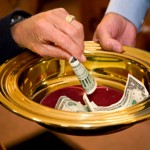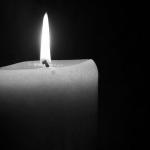Another broadcasting legend is gone:
Veteran journalist Cokie Roberts, who joined an upstart NPR in 1978 and left an indelible imprint on the growing network with her coverage of Washington politics before later going to ABC News, has died. She was 75.
Roberts died Tuesday due to complications from breast cancer, according to a family statement.
A bestselling author and Emmy Award winner, Roberts was one of NPR’s most recognizable voices and is considered one of a handful of pioneering female journalists — along with Nina Totenberg, Linda Wertheimer and Susan Stamberg — who helped shape the public broadcaster’s sound and culture at a time when few women held prominent roles in journalism.
Roberts, the daughter of former U.S. representatives, grew up walking the halls of Congress and absorbing the personalities, folkways and behind-the-scenes machinations of the nation’s capital. She became a seasoned Washington insider who developed a distinctive voice as a reporter and commentator.
In a 2017 interview with Kentucky Educational Television, Roberts reflected on her long career.
“It is such a privilege – you have a front seat to history,” she said. “You do get used to it, and you shouldn’t, because it is a very special thing to be able to be in the room… when all kinds of special things are happening.”
A few years ago, the late, great Sister Mary Anne Walsh interviewed Roberts, who spoke about her Catholicism in the pages of America:
My sister used to say that we were always taught that God had given us life and as a New Orleans Catholic you were taught that the best way to please someone who has presented you with a gift is to enjoy it. New Orleans Catholicism then, and I hope still is, was all about joy. God loves you. Enjoy it. Love other people. Bring them joy through your actions. My parents firmly believed that every single human being is made in the image and likeness of God. They treated every person totally equally. I always joked with my mother that she treated the queen of England and the person who cleaned the bathrooms exactly the same and she had met them both. That sense of the fundamental holiness of people permeated their politics as well as their personhood. That understanding is the greatest gift they gave us as children. I remember one day at the ground-breaking for the John Paul II Center in Washington where out of the goodness of my heart I had agreed to serve as MC. An officious priest came up and extremely rudely told me to move away from where I was. When I explained my role he curtly offered a word of apology saying, “I didn’t know who you were.” When I asked him why he would address anyone in such a manner, regardless of who they were, he was dumbfounded. I guess he took something different away from the catechism than my family did. Also, there is no way to talk about my faith absent the Society of the Sacred Heart. The women who were my teachers and remain my dear friends mean the world to me. They took girls seriously in the 1950s—a radical notion, so there was never any “grown-up” need to reject them, only to thank them—and they keep the faith. I hang in there in tough times when the men in the hierarchy are really getting me down in large part in solidarity with them.
Eternal rest grant unto her, O Lord, and let perpetual light shine upon her…











